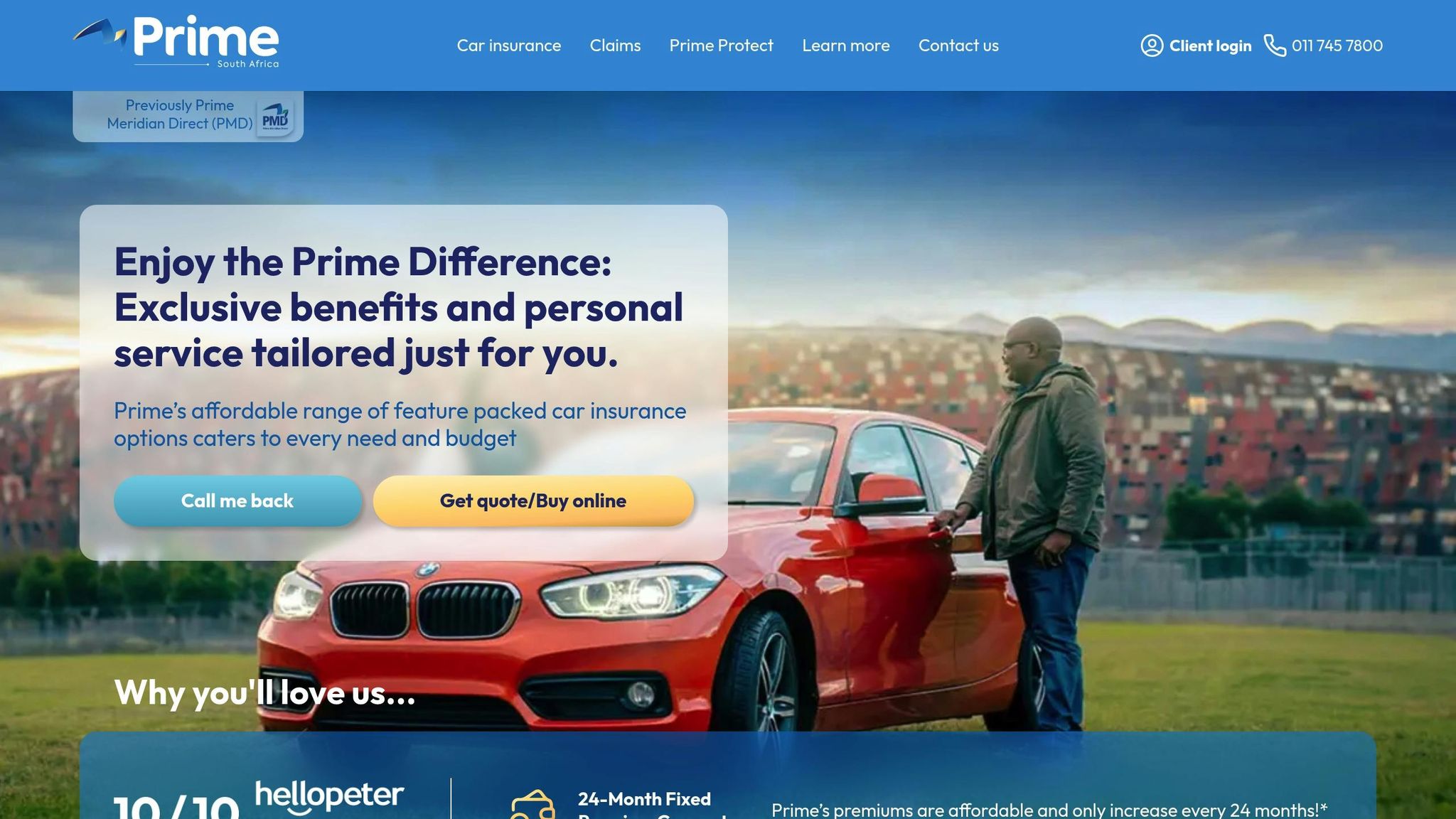Car theft is a serious issue in South Africa, and theft insurance helps protect you financially if your vehicle is stolen or hijacked. While not legally required for private cars, theft coverage is often mandatory if your vehicle is financed. Here’s what you need to know:
- Types of Coverage:
- Full Coverage: Includes theft, hijacking, accidents, and third-party liability.
- Third-Party Fire and Theft: Covers theft, fire, and third-party liability at a lower cost.
- Limited Fire and Theft: Focuses on theft and fire, ideal for older vehicles.
- Security Requirements:
- Insurers often require tracking devices, immobilizers, or alarms.
- Non-compliance with these measures can lead to claim denial.
- Filing a Claim:
- Report the theft to the police immediately.
- Gather documents like the police report, proof of registration, and evidence of security compliance.
- Submit the claim promptly to avoid delays or denial.
- Common Claim Issues:
- Non-functional security devices, delayed reporting, or missing documents can result in rejection.
Choosing the right policy depends on your car’s value, risk tolerance, and budget. Stay informed, maintain required security measures, and act quickly if theft occurs to ensure smooth claims processing.
Prime South Africa – How Our Unique Comprehensive Car Insurance Works

Security Requirements for Theft Insurance Coverage
In South Africa, insurance companies often expect policyholders to take specific security precautions to reduce the risk of vehicle theft. Being aware of these requirements can make the claims process smoother if your vehicle is ever stolen.
Security Measures Required by Insurers
While each insurer has its own guidelines, many policies suggest or mandate the installation of certain security devices. These commonly include:
- Tracking devices: These can help locate your vehicle if it’s stolen.
- Engine immobilizers: These prevent the vehicle from being started without proper authorization.
- Alarm systems: These serve as a deterrent to potential thieves.
It’s crucial to review your insurance policy carefully. The standards for these devices and their installation can vary depending on your insurer and the assessed risk of your vehicle. Not meeting these requirements could lead to serious issues when filing a claim.
What Happens When You Don’t Meet Requirements
If you fail to comply with the required security measures, it could make the claims process much more challenging.
Example of Security Non-Compliance
For instance, neglecting to install or maintain an approved tracking device, immobilizer, or alarm system might result in your claim being denied. To avoid this, make sure your security devices are regularly inspected and promptly repaired if needed. This ensures you remain in line with your insurer’s expectations.
Comparing Theft Insurance Policies
When choosing car theft insurance in South Africa, insurers typically offer a range of policy options to cater to different needs. Two common types are full coverage insurance and third-party fire and theft insurance. Understanding the distinctions between these options can help you select the one that aligns with your vehicle’s value and your financial priorities.
Full Coverage Insurance Features
Full coverage insurance provides extensive protection that goes beyond just theft. These policies often include coverage for a variety of risks, making them a solid choice for newer or higher-value vehicles. If you own a car with significant value, this type of policy can offer peace of mind. However, it’s crucial to review the specifics, such as deductibles and exclusions, to understand the full scope of what’s covered.
Third-Party Fire and Theft Insurance Features
This option is more focused, covering theft and fire-related incidents. While it doesn’t provide the broad protection of full coverage, it is typically more affordable. This makes it a practical choice for older or lower-value vehicles where comprehensive protection may not be as necessary.
Comparison Overview
Here’s a quick breakdown of the key differences:
| Policy Type | General Features | Best For |
|---|---|---|
| Full Coverage Insurance | Covers a wide range of risks beyond theft | Newer or high-value vehicles |
| Third-Party Fire and Theft | Focuses on theft and fire-related incidents | Older or lower-value vehicles |
sbb-itb-09752ea
How to File a Theft Insurance Claim
If your car is stolen in South Africa, taking swift action and having the right paperwork ready can make the claims process smoother. Here’s what you need to know.
First Steps After a Theft
The first thing you should do is report the theft to the police. This step is critical because you’ll need an official police report to proceed with your claim. Once that’s done, contact your insurance provider as soon as possible. If you’re in immediate danger or need assistance, prioritize your safety before reporting the incident.
Documents You’ll Need
Once the theft has been reported, start gathering the necessary documents for your claim. These typically include:
- A copy of the police report or its reference number
- Proof of your vehicle’s registration
- Confirmation that your insurance policy is active
- Evidence showing compliance with any required security measures
- A detailed written statement describing the incident
Having these documents ready can help avoid delays in processing your claim.
What to Expect During the Claims Process
After submitting your claim, your insurance provider will review the information and may ask for additional details. Make sure to respond quickly to any requests to keep things moving.
Most policies require you to pay a deductible before the insurer processes the settlement. The final payout will depend on the terms of your policy, so it’s a good idea to review your coverage or speak directly with your insurer if you have specific questions about the process or compensation.
Common Reasons for Claim Rejection and How to Avoid Them
Knowing why theft claims are denied can help you sidestep potential headaches when you need your insurance the most. Many claim rejections stem from avoidable mistakes.
Why Claims Get Denied
One of the biggest culprits is non-functional security devices. Insurers often require that security measures – like tracking devices, immobilizers, or alarms – are operational at the time of theft. If your tracking device’s battery is dead or your alarm system isn’t working, your claim could be denied.
Another common reason is delayed reporting. Most insurance policies require thefts to be reported within 24 to 48 hours. Waiting too long can raise suspicions and may lead to an automatic denial. Timely reporting not only keeps you in compliance but also gives insurers a better chance to investigate and recover your vehicle.
Incomplete or inconsistent documentation is another frequent issue. Missing paperwork or conflicting details can make it hard for insurers to process your claim.
Finally, policy violations can void your coverage. Examples include making unauthorized modifications to your vehicle, letting an unlisted driver use your car, or failing to maintain required security upgrades. Some policies even exclude coverage if your car is used for commercial purposes without prior approval. These situations underline the importance of following your policy’s rules to the letter.
How to Prevent Claim Rejection
Avoid these pitfalls by taking proactive steps:
- Keep your security systems in top shape: Regularly test and maintain all security devices, and hold onto maintenance records and receipts. They can prove that your systems were functional at the time of theft.
- Report theft immediately: Aim to notify your insurer within 24 to 48 hours. Save their emergency contact information on your phone to ensure you can report incidents promptly, even outside normal business hours.
- Document everything: Take photos of the scene, note any signs of forced entry, and jot down the details while they’re fresh in your mind. Keep receipts for security installations, vehicle upgrades, and maintenance work to strengthen your case.
- Stay on top of policy requirements: Review your coverage regularly and notify your insurer about any changes, such as new modifications or security features. Keeping a record of your vehicle’s condition – like timestamped photos – can be a lifesaver when verifying its value during a claim.
Key Points to Remember
Picking the right car theft insurance in South Africa means understanding exactly what your policy covers and what’s expected of you. Take the time to go through the terms carefully so you’re clear on the protection provided and any obligations you need to fulfill.
Most insurers require specific anti-theft measures, such as tracking systems, immobilizers, or alarms, to be installed and properly maintained. Keeping these security features in good working order not only enhances your vehicle’s safety but also helps avoid issues when filing a claim.
If your car is stolen, act quickly. Notify your insurer immediately and ensure you have all the necessary paperwork ready. Keeping detailed records of your vehicle’s condition and its security installations can make the claims process much smoother.
Be mindful of common reasons claims get denied, like not following policy requirements, reporting delays, or missing documentation. Regularly reviewing your policy can help you stay informed about your coverage, keep up with any updates, and ensure you’re meeting all conditions.
When selecting insurance, weigh both the level of protection and the cost. Aim for a policy that strikes the right balance between affordability and comprehensive coverage. Following these steps will help you navigate South Africa’s challenging car insurance landscape with confidence.
FAQs
What can I do if my car is stolen but I haven’t installed the required security devices?
If your car gets stolen and you haven’t installed the security devices required by your insurance policy, the first step is to report the theft to the police right away and obtain a case number. Once that’s done, reach out to your insurance provider as soon as possible to explain the situation. It’s crucial to be upfront about the missing security devices – giving false information could result in your claim being denied or even lead to the cancellation of your policy.
Even if you haven’t met the policy’s security requirements, some insurers might still evaluate your claim on a case-by-case basis. The best approach is to have an open conversation with your insurance company to explore your options and understand the steps they recommend moving forward.
How can I make sure my car’s security devices meet my insurance policy requirements?
To make sure your car’s security devices align with your insurance policy, start by carefully reviewing your policy documents or reaching out to your insurer directly. In South Africa, many insurers require certain anti-theft measures like immobilizers, alarms, or tracking systems to be installed and in working order.
Find out if your insurer provides a list of approved security devices or trusted providers. If you’re uncertain whether your current devices meet their requirements, ask for clarification or consider having a professional inspect them. It’s also a good idea to keep receipts or proof of installation handy – these can be crucial if you ever need to confirm compliance when filing a claim.
What should I do immediately after my car is stolen to make sure my insurance claim is accepted?
If your car gets stolen, taking immediate action and following the right steps can make a big difference in how smoothly your insurance claim is handled. Start by reporting the theft to the police right away and make sure to get a case number – your insurance company will need this.
Next, reach out to your insurance provider to inform them about the theft. Be ready to share all the required details, including the police case number, your car’s registration, and your insurance policy information.
Follow any specific instructions your insurer gives you, such as filling out claim forms or submitting additional evidence. Acting quickly and ensuring the information you provide is accurate can help avoid unnecessary delays or complications with your claim.
Related Blog Posts
- 8 Ways To Prevent Used Car Theft
- Why Keyless Entry Cars Are High-Risk In SA
- Car insurance prices in South Africa
- How to Slash Your Car Insurance Costs in South Africa (Up to 30%)





